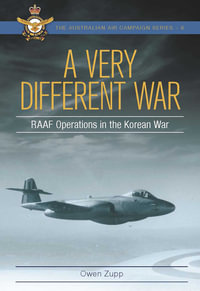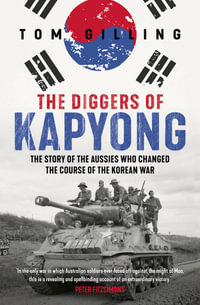This classic history of the Korean War-from its origins through the armistice-is now available in a paperback edition including a substantive introduction that considers the heightened danger of a new Northeast Asian war as Trump and Kim Jung-un escalate their rhetoric. Wada Haruki, one of the world's leading scholars of the war, draws on archival and other primary sources in Russia, China, the United States, South Korea, Taiwan, and Japan to provide the first full understanding of the Korean War as an international conflict from the perspective of all the actors involved. Wada traces the North Korean invasion of South Korea in riveting detail, providing new insights into the behavior of Kim Il Sung and Syngman Rhee. He also provides new insights into the behavior of Communist leaders in Korea, China, Russia, Eastern Europe, and their rivals in other nations. He traces the course of the war from its origins in the North and South Korean leaders' failed attempts to unify their country by force, ultimately escalating into a Sino-American war on the Korean Peninsula. Although sixty-five years have passed since the armistice, the Korean conflict has never really ended. Tensions remain high on the peninsula as Washington and Pyongyang, as well as Seoul and Pyongyang, continue to face off. It is even more timely now to address the origins of the Korean War, the nature of the confrontation, and the ways in which it affects the geopolitical landscape of Northeast Asia and the Pacific region. With his unmatched ability to draw on sources from every country involved, Wada paints a rich and full portrait of a conflict that continues to generate controversy.
Industry Reviews
Western historians often view the Korean War through the prism of the Cold War, which can reduce Koreans, north and south, into players and pawns on a much larger chessboard. This excellent work by a Japanese historian reminds readers that it was Koreans who bore the brunt of the suffering, fighting, and dying. In its origins and in the initial phase of the Korean conflict, it was a civil war, triggered by the ambitions of two contemptible 'leaders.' In the North, Kim Il Sung had already begun imposing a brutal, totalitarian regime. In the south, Syngman Rhee, proclaimed by some Americans as a democratic champion, was a highly authoritarian and inflexible politician. Both men were determined to unite their nation by military force. Following the North Korean invasion and the American intervention, the war was internationalized, and [Wada] eloquently recounts the roles played by political and military leaders on both sides. His description of the peace negotiations is particularly riveting as American negotiators were as frustrated by their South Korean allies as they were by their opponents. This fine rendering of the conflict provides an important perspective on an unresolved war. * Booklist, Starred Review *
Haruki has published works on Russian history as well as North Korea, thus bringing strong credentials to this well-researched, dispassionate book. For years, left-wing historians have viewed the Korean Conflict as a civil war that the US should have avoided. Using recently released Russian documents, the author demonstrates that the Korean Conflict was Stalin's war. This work is noteworthy chiefly for the perspectives of the combatant leaders-Joseph Stalin, Mao Zedong, Kim Il Sung, Harry Truman, and Syngman Rhee. The emphasis thus is on the war's political and diplomatic history, with just brief reference to the military. It is truly excellent in showing the effects of the war, clearly demonstrating that the chief beneficiaries were Japan and Taiwan; both reaped rewards politically and economically at no cost to themselves. Extensive documentation, a recent bibliography, a good index, and adequate maps are strengths. . . .[T]his book belongs with other classic works on the conflict, such as Max Hastings's The Korean War and Bruce Cumings's The Korean War: A History (2010). Summing Up: Essential. Upper-division undergraduates and above. * CHOICE *
The best comprehensive history in any language on North Korea and its wartime relations with China, the Soviet Union, and the United States. -- Charles K. Armstrong, Columbia University
Wada Haruki is perhaps the only scholar in the world today who is capable of writing a book on the Korean War as extraordinary as this one. Its strength is reflected not only in his extensive multi-archival research-Chinese, Russian, American, Korean, and Japanese-but also in his insightful perspectives on war and scholarly debates. English-speaking readers will benefit from his thoughtful and thorough analysis of the complicated origins, tortuous processes, and profound legacies of the first major hot war during the Cold War. -- Jian Chen, New York University/NYU-Shanghai
Wada Haruki, the doyen of international history in Japan, presents an engrossing new take on the Korean War, based on his reading of Korean, Russian, and Chinese as well as U.S. and Japanese sources. Wada's book is an outstanding addition to the literature on the war and a useful corrective to the many accounts that focus primarily on the American role. -- O. A. Westad, London School of Economics

























